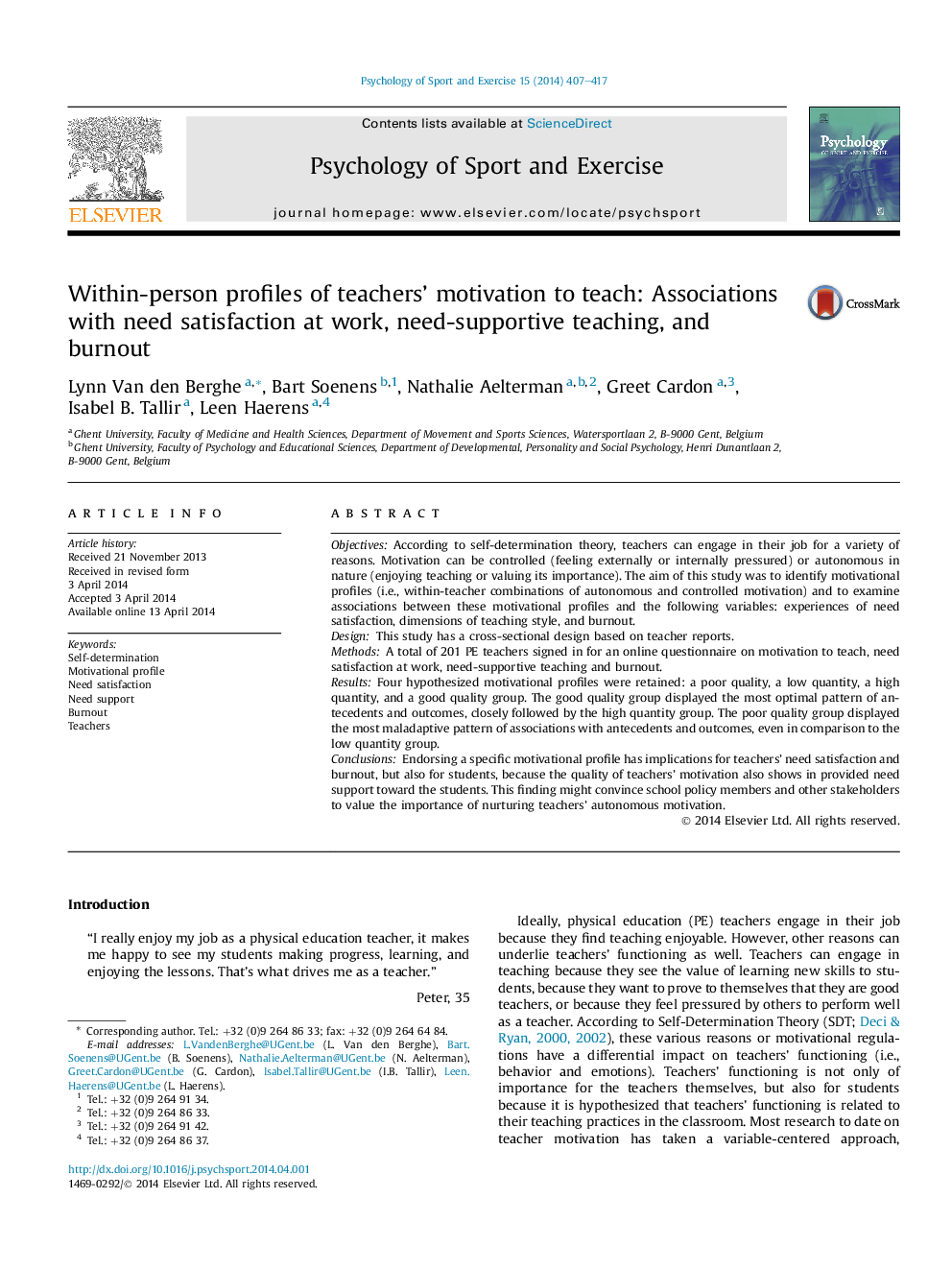| Article ID | Journal | Published Year | Pages | File Type |
|---|---|---|---|---|
| 894397 | Psychology of Sport and Exercise | 2014 | 11 Pages |
•A low quality, low quantity, high quantity, and good quality motivation group were retained.•Differences in need satisfaction, need support and burnout between teachers are examined.•The good quality group reported more need satisfaction and support than the low quality group.•The good quality profile reported less burnout than the low quality group.•Qualitative motivation of PE teachers is important for research and practice.
ObjectivesAccording to self-determination theory, teachers can engage in their job for a variety of reasons. Motivation can be controlled (feeling externally or internally pressured) or autonomous in nature (enjoying teaching or valuing its importance). The aim of this study was to identify motivational profiles (i.e., within-teacher combinations of autonomous and controlled motivation) and to examine associations between these motivational profiles and the following variables: experiences of need satisfaction, dimensions of teaching style, and burnout.DesignThis study has a cross-sectional design based on teacher reports.MethodsA total of 201 PE teachers signed in for an online questionnaire on motivation to teach, need satisfaction at work, need-supportive teaching and burnout.ResultsFour hypothesized motivational profiles were retained: a poor quality, a low quantity, a high quantity, and a good quality group. The good quality group displayed the most optimal pattern of antecedents and outcomes, closely followed by the high quantity group. The poor quality group displayed the most maladaptive pattern of associations with antecedents and outcomes, even in comparison to the low quantity group.ConclusionsEndorsing a specific motivational profile has implications for teachers' need satisfaction and burnout, but also for students, because the quality of teachers' motivation also shows in provided need support toward the students. This finding might convince school policy members and other stakeholders to value the importance of nurturing teachers' autonomous motivation.
